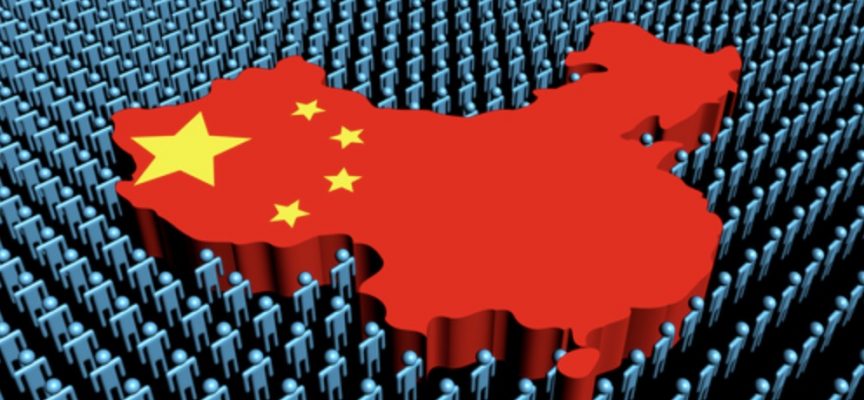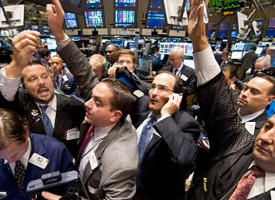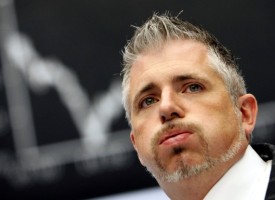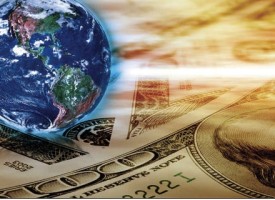Today one of the greats in the business discussed China’s bold moves and warned that the implications for investors are enormous.
China’s Bold Moves
October 28 (King World News) – Stephen Leeb: “A remarkable aspect to President Xi Jingping’s opening address to the just-concluded 19th congress of China’s Communist Party was the astounding – and as you’ll see, well-founded – confidence with which Xi asserted that China would hold on to the much-disputed artificial islands it has created in the South China Sea…
In Volatile Markets, Is Wealth Preservation King?
 Sponsored
Sponsored
Stephen Leeb continues: “Xi called construction of the islands an achievement that was a highlight of his first five years. And he left no doubt that China will defend the now militarized islands it created when he stated:
“Our military must regard combat capability as the criterion to meet in all its work.”
The Implications For Investors Are Enormous
In other words, the U.S. be damned. China has told the world it can do whatever the hell it wants, and we can’t stop it. And one thing it wants is to get rid of the dollar as the primary currency used in trade, starting in the East and then in the world at large, a goal that is directly tied to those artificial islands. The implications for the U.S. – and investors – are enormous. Among other things, they hugely reinforce the case for gold.
According to the Center for Strategic and International Studies (CSIS), the construction, militarization, and continued control of those islands are critical to controlling trade in the East. Whoever has control of trade in the East can dictate the terms of that trade, including the currency in which it is conducted. Perhaps no issue has greater geopolitical and economic significance.
So what makes Xi so confident that he can flout the wishes of the U.S., which of course has long expressed its displeasure with the artificial islands? Secretary Tillerson did so a while back in his confirmation hearings when he said: “We’re going to have to send China a clear signal that … island building stops and … access to those islands is not going to be allowed.” More recently, commenting on the island building in an address to the CSIS, Tillerson said that China is “going to have to walk some of that back.”
But do we really have the guts, the will, and above all the capability to challenge Xi over islands that he considers a hallmark achievement and has vowed to defend, a vow that if broken would undermine all that he has accomplished? The evidence is strong that we don’t, and that we’ve lost the battle over the islands and along with it lost any meaningful say over Eastern trade.
Let’s look more closely at why Xi could speak with such supreme confidence. It reflects the basic, tragic reality that compared to China, the U.S. lacks both the materials and the scientific expertise to pose a credible offensive threat to China. The materials in particular that we lack are rare earth metals, which are critical to an advanced military.
David S. Abraham author of “The Elements of Power” (Yale University Press, 2015) quotes highly credible individuals about the importance of such rare metals to a country’s military capabilities. Retired Air Force Major General Robert H. Latiff, who holds a Ph.D. in materials science and consults on military matters, tells Abrams: “nearly all our systems today depend on rare metals… Without some of these minor metals you would have to go back to 1960s or 1970s performance.”
The general further bemoans the lack of qualified material scientists graduating from U.S. universities, which means that even if the country had full access to the periodic table, we would still lack the skills to use these materials effectively.
China has no such limitations. While the U.S. has exactly one program dealing with rare earth engineering, China has dozens. Of course, given our lack of access to the rare earths and other critical materials that China monopolizes, there’s little motivation for the U.S. to establish such programs.
As a result, it’s a nearly sure bet that the U.S. is in no position to dislodge China from any of the islands it currently controls. Yes, we outspend China on our military, but that doesn’t tell you whether we’re spending on the right things. I am not saying China has the military might to dominate the world, but its technologies are more than sufficient to defend the islands it has claimed, which ensure that China will have economic and monetary hegemony in the East.
The All-Important 2009 Quote
Which brings me to the all-important question of how China will want Eastern trade to be conducted. For an answer, go back to what I said in my last interview in which I quoted Zhou Xiaochuan, the redoubtable head of the People’s Bank of China (PBOC), China’s central bank. The most relevant remark came from a 2009 paper in which Zhou asked: “What kind of international reserve currency do we need to secure global financial stability and facilitate world economic growth…Theoretically, an international reserve currency should first be anchored to a stable benchmark…. Its supply should be flexible enough to allow timely adjustment according to the changing demand.”
He goes on to offer a possible example: “Back in the 1940s, Keynes had… proposed…an international unit named ‘Bancor’, based on the value of 30 representative commodities….The collapse of the Bretton Woods system…indicates that the Keynesian approach may have been more farsighted.”
In the same paper Zhou also indicated he was in favor of giving a greater role to a basket of currencies such as the SDR, a role similar perhaps to that envisioned for the Bancor. “Special consideration should be given to giving the SDR a greater role.” Perhaps completing the picture, he noted: “The creation of an international currency unit, based on the Keynesian proposal, is a bold initiative that requires extraordinary political vision and courage.”
As I’ve said before, I believe that China’s vision of a new reserve currency would likely have a gold-backed yuan as just an initial step. The end goal would be a basket of currencies that would include gold and might be backed by a basket of commodities a la Keynes and at least partially managed via a complex blockchain. In such a system, gold would likely float against the other basket members and clearly emerge as the component that balances supply and demand. This implies a value for gold that is eventually exponentially higher than today – especially as commodity scarcities emerge, which to me seems a near certainty in a growing world.
Gold & Silver
Investors should pay no attention to fluctuations in the gold and silver markets. These markets, courtesy of China, are destined for singular glory. I continue to believe that an Eastern oil benchmark denominated in yuan will be the next and most critical step in the process. China, in typical fashion, is craftily acting to make sure this plan doesn’t attract undue attention in the West for now. One way it has been lulling the West is by pointing to China’s own debt problems, reinforcing the West’s preoccupation with Chinese debt. In addition, China has recently been issuing dollar-denominated bonds, further assuring the West that it need not unduly worry about the oil trading in Yuan.
But the more low-key the trading initially, the more time you have to back up the truck – just make sure it is as big a truck as you can find. Precious metals are a lot more than a way to diversify your portfolio — they’re a compelling and utterly necessary insurance against potential chaos.”
***ALSO JUST RELEASED: Here Is A Big Picture Look At What The Bullion Banks Are Up To In The Gold & Silver Markets CLICK HERE.
© 2017 by King World News®. All Rights Reserved. This material may not be published, broadcast, rewritten, or redistributed. However, linking directly to the articles is permitted and encouraged.








